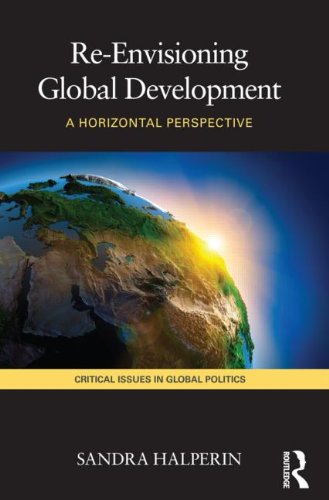Re-Envisioning Global Development: A Horizontal Perspective (Critical Issues in Global Politics)
Re-Envisioning Global Development offers an original conceptualisation of capitalist development from its origins to the present day.
Most approaches to understanding contemporary development assume that industrial capitalism was achieved through a process of nationally organised economic growth, and that in recent years its organisation has become increasingly trans-local or global. However, Halperin shows that nationally organised economic growth has rarely been the case – it has only recently come to characterise a few countries and for only a few decades.
This innovative text elaborates an alternative ontology and way of thinking about global development during the last two centuries – one linked, not to nations and regions, but to a set of essentially trans-national relations and connections. It argues that capitalist development has, everywhere and from the start, involved―not whole nations or societies–but only sectors or geographical areas within states. By bringing this aspect of historically ‘normal’ capitalist development into clearer focus, the book clarifies the specific conditions and circumstances that enabled European economies to pursue a more broad-based development following World War II, and what prevented a similar outcome in the contemporary ‘third world’. It also clarifies the nature, spatial extent, and circumstances of current globalising trends.
Wide-ranging and provocative, this book is required reading for advanced level students and scholars in development studies, development economics and political science.





